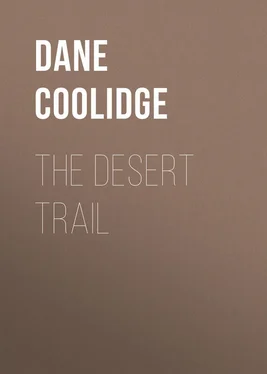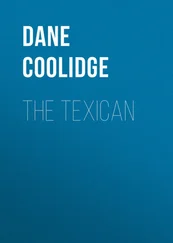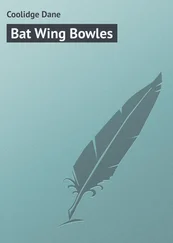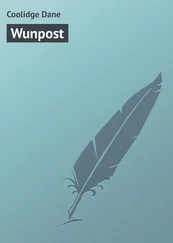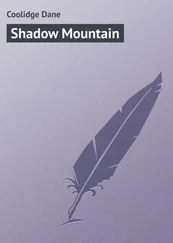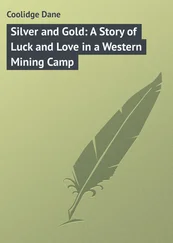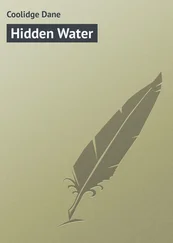Dane Coolidge - The Desert Trail
Здесь есть возможность читать онлайн «Dane Coolidge - The Desert Trail» — ознакомительный отрывок электронной книги совершенно бесплатно, а после прочтения отрывка купить полную версию. В некоторых случаях можно слушать аудио, скачать через торрент в формате fb2 и присутствует краткое содержание. ISBN: , Жанр: foreign_prose, на английском языке. Описание произведения, (предисловие) а так же отзывы посетителей доступны на портале библиотеки ЛибКат.
- Название:The Desert Trail
- Автор:
- Жанр:
- Год:неизвестен
- ISBN:http://www.gutenberg.org/ebooks/52358
- Рейтинг книги:5 / 5. Голосов: 1
-
Избранное:Добавить в избранное
- Отзывы:
-
Ваша оценка:
- 100
- 1
- 2
- 3
- 4
- 5
The Desert Trail: краткое содержание, описание и аннотация
Предлагаем к чтению аннотацию, описание, краткое содержание или предисловие (зависит от того, что написал сам автор книги «The Desert Trail»). Если вы не нашли необходимую информацию о книге — напишите в комментариях, мы постараемся отыскать её.
The Desert Trail — читать онлайн ознакомительный отрывок
Ниже представлен текст книги, разбитый по страницам. Система сохранения места последней прочитанной страницы, позволяет с удобством читать онлайн бесплатно книгу «The Desert Trail», без необходимости каждый раз заново искать на чём Вы остановились. Поставьте закладку, и сможете в любой момент перейти на страницу, на которой закончили чтение.
Интервал:
Закладка:
Dane Coolidge
The Desert Trail
I
The slow-rolling winter's sun rose coldly, far to the south, riding up from behind the saw-toothed Sierras of Mexico to throw a silvery halo on Gadsden, the border city. A hundred miles of desert lay in its path – a waste of broken ridges, dry arroyos, and sandy plains – and then suddenly, as if by magic, the city rose gleaming in the sun.
It was a big city, for the West, and swarming with traffic and men. Its broad main street, lined with brick buildings and throbbing with automobiles, ran from the railroad straight to the south until, at a line, it stopped short and was lost in the desert.
That line which marked the sudden end of growth and progress was the border of the United States; the desert was Mexico. And the difference was not in the land, but in the government.
As the morning air grew warm and the hoar frost dripped down from the roofs the idlers of the town crept forth, leaving chill lodgings and stale saloons for the street corners and the sun.
Against the dead wall of a big store the Mexicans gathered in shivering groups, their blankets wrapped around their necks and their brown ankles bare to the wind. On another corner a bunch of cowboys stood clannishly aloof, eying the passing crowd for others of their kind.
In this dun stream which flowed under the morning sun there were mining men, with high-laced boots and bulging pockets; graybeards, with the gossip of the town in their cheeks; hoboes, still wearing their Eastern caps and still rustling for a quarter to eat on; somber-eyed refugees and soldiers of fortune from Mexico – but idlers all, and each seeking his class and kind.
If any women passed that way they walked fast, looking neither to the right nor to the left; for they, too, being so few, missed their class and kind.
Gadsden had become a city of men, huge-limbed and powerful and with a questing look in their eyes; a city of adventurers gathered from the ends of the world. A common calamity had driven them from their mines and ranches and glutted the town with men; for the war was on in Mexico and from the farthermost corners of Sonora they still came, hot from some new scene of murder and pillage, to add their modicum to the general discontent.
As the day wore on the crowd on the bank corner, where the refugees made their stand, changed its complexion, grew big, and stretched far up the street. Men stood in shifting groups, talking, arguing, gazing moodily at those who passed.
Here were hawk-eyed Texas cattlemen, thinking of their scattered herds at Mababi or El Tigre; mining men, with idle prospects and deserted mines as far south as the Rio Yaqui; millmen, ranchers, and men of trades – all driven in from below the line and all chafing at the leash. While a hundred petty chiefs stood out against Madero and lived by ransom and loot, they must cool their heels in Gadsden and wait for the end to come.
Into this seething mass of the dispossessed, many of whom had lost a fortune by the war, there came two more, with their faces still drawn and red from hard riding through the cold. They stepped forth from the marble entrance of the big hotel and swung off down the street to see the town.
They walked slowly, gazing into the strange faces in the vague hope of finding some friend; and Gadsden, not to be outdone, looked them over curiously and wondered whence they had come.
The bunch of cowboys, still loitering on the corner, glanced scornfully at the smaller man, who sported a pair of puttees – and then at the big man's feet. Finding them encased in prospector's shoes they stared dumbly at his wind-burned face and muttered among themselves.
He was tall, and broad across the shoulders, with far-seeing blue eyes and a mop of light hair; and he walked on his toes, stiff-legged, swaying from the hips like a man on horseback. The rumble of comment rose up again as he racked past and then a cowboy voice observed:
"I bet ye he's a cowpunch!"
The big man looked back at them mockingly out of the corner of his eye and went on without a word.
It is the boast of cowboys that they can tell another puncher at a glance; but they are not alone in this – there are other crafts that leave their mark and other men as shrewd. A group of mining men took one look at the smaller man, noting the candle-grease on his corduroys and the intelligence in his eyes; and to them the big man was no more than a laborer – or a shift-boss at most – and the little man was one of their kind. Every line in his mobile face spoke of intellect and decision, and as they walked it was he who did the talking, while the big man only nodded and smiled.
They took a turn or two up the street, now drifting into some clamorous saloon, now standing at gaze on the sidewalk; and as the drinks began to work, the little man became more and more animated, the big man more and more amiable in his assent and silence.
Then as they passed the crowd of refugees they stopped and listened, commenting on the various opinions by an exchange of knowing smiles. An old prospector, white-haired and tanned to a tropic brown, finally turned upon a presumptuous optimist and the little man nodded approvingly as he heard him express his views.
"You can say what you please," the prospector ended, "but I'm going to keep out of that country. I've knowed them Mexicans for thirty years now and I'm telling you they're gitting treacherous. It don't do no good to have your gun with you – they'll shoot you from behind a rock – and if they can't git you that way, they'll knife you in your sleep.
"I've noticed a big change in them paisanos since this war come on. Before Madero made his break they used to be scared of Americans – thought if they killed one of us the rest would cross the border and eat 'em up. What few times they did tackle a white man he generally give a good account of himself, too, and I've traveled them trails for years without hardly knowing what it was to be afraid of anybody; but I tell you it's entirely different over there now."
"Sure! That's right!" spoke up the little man, with spirit. "You're talking more sense than any man on the street. I guess I ought to know – I've been down there and through it all – and it's got so now that you can't trust any of 'em. My pardner and I came clear from the Sierra Madres, riding nights, and we come pretty near knowing – hey, Bud?"
"That's right," observed Bud, the big man, with a reminiscent grin. "I begin to think them fellers would get us, for a while!"
"Mining men?" inquired the old prospector politely.
"Working on a lease," said the little man briefly. "Owner got scared out and let us in on shares. But no more for muh – this will hold me for quite a while, I can tell you!"
"Here, too," agreed the big man, turning to go. "Arizona is good enough for me – come on, Phil!"
"Where to?" The little man drew back half resentfully, and then he changed his mind. "All right," he said, falling into step, "a gin fizz for mine!"
"Not on an empty stomach," admonished his pardner; "you might get lit up and tell somebody all you know. How about something to eat?"
"Good! But where're you going?"
The big man was leading off down a side street, and once more they came to a halt.
"Jim's place – it's a lunch-counter," he explained laconically. "The hotel's all right, and maybe that was a breakfast we got, but I get hungry waiting that way. Gimme a lunch-counter, where I can wrop my legs around a stool and watch the cook turn 'em over. Come on – I been there before."
An expression of pitying tolerance came over the little man's face as he listened to this rhapsody on the quick lunch, but he drew away reluctantly.
"Aw, come on, Bud," he pleaded. "Have a little class! What's the use of winning a stake if you've got to eat at a dog-joint? And besides – say, that was a peach of a girl that waited on us this morning! Did you notice her hair? She was a pippin! I left four-bits under my plate!"
Читать дальшеИнтервал:
Закладка:
Похожие книги на «The Desert Trail»
Представляем Вашему вниманию похожие книги на «The Desert Trail» списком для выбора. Мы отобрали схожую по названию и смыслу литературу в надежде предоставить читателям больше вариантов отыскать новые, интересные, ещё непрочитанные произведения.
Обсуждение, отзывы о книге «The Desert Trail» и просто собственные мнения читателей. Оставьте ваши комментарии, напишите, что Вы думаете о произведении, его смысле или главных героях. Укажите что конкретно понравилось, а что нет, и почему Вы так считаете.
